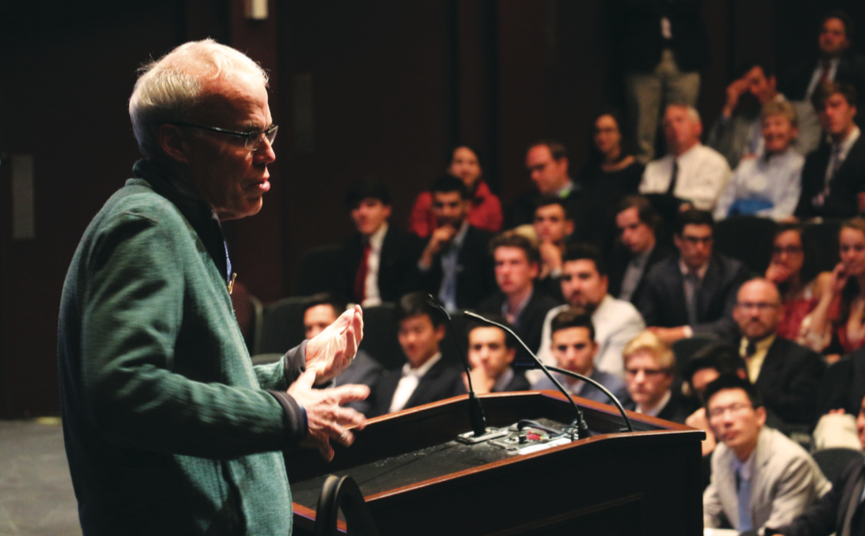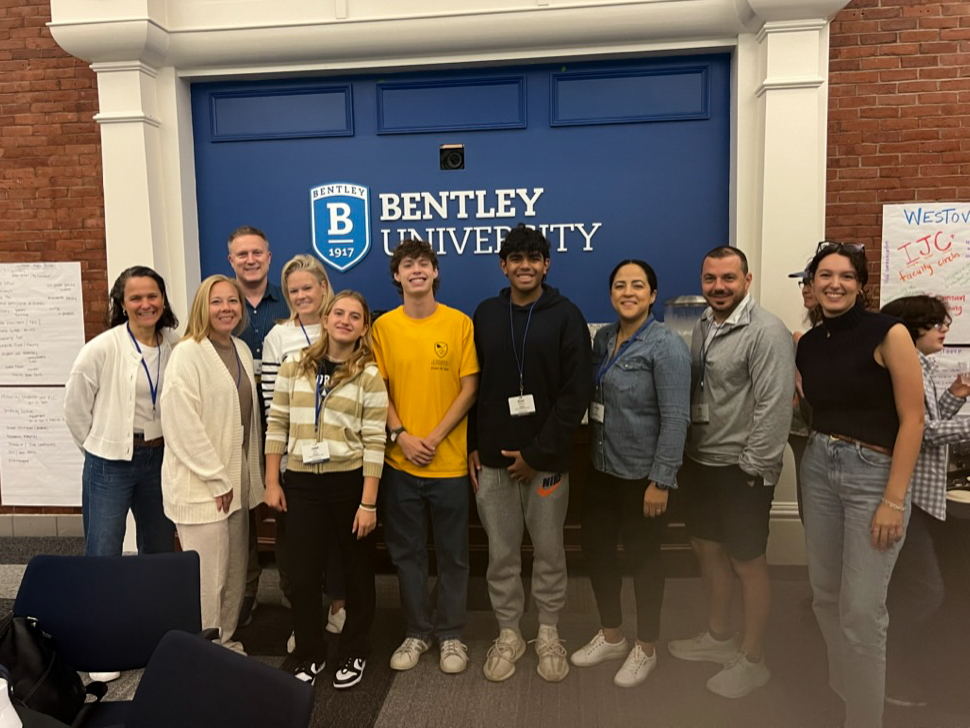At a time when environmental dilemmas continue to have devastating effects on climates around the globe, Bill McKibben, an environmental activist and bestselling author, addressed the Choate community.
Mr. McKibben began his presentation by describing the current environmental circumstances, such as the devastating impacts of global warming. He mentioned that recent temperatures recorded at the North Pole were 50ºF above normal. In addition, torrential rains in tropical regions have been among the most considerable in history, and in the sections of Scandinavia above the Arctic Circle where it should not rain it does rain. Mr. McKibben asserted, “This is all a trailer for the gruesome movie moving forward.”
However, Mr. McKibben emphasized to the students in the audience, “None of this is your fault, but it’s the world your quickly coming of age in.”
With that, Mr. McKibben stressed that humanity is able to recover from the effects of global warming seen thus far and that it is still not too late to act. He asserted that humanity possesses the means to contain global warming.
The science department was responsible for hosting Tuesday night’s event as part of the fourteenth annual Charles A. Krauss ’51 Lecture Series. Mr. Ben Small, Director of the Science Department, headed the selection process for this year’s speaker. On why he chose Mr. McKibben, he said, “Global warming is one of the most important issues faced in the world today. At a place like Choate, it’s easy to forget about it: One can turn up his or her air conditioning or drive to a cooler place. However, it’s important that we keep it at the forefront of our interests.”
Numerous organizations have recognized Mr. McKibben’s outstanding work. A graduate of Harvard University, Mr. McKibben holds honorary degrees from 17 other colleges and universities. At Middlebury College, he is the Schumann Distinguished Scholar in Environmental Studies. Foreign Policy added his name to its list of of the world’s 100 most important global thinkers. And, in 2014, biologists named a newly discovered species of woodland gnat after Mr. McKibben: the Megophthalmidia Mckibbeni.
Mr. McKibben uses his work to demonstrate the problem with avoidance and the power of action. According to the environmental activist, many regions across the planet have demonstrated that progress is possible . For instance, Denmark produces half of its power from wind energy. Mr. McKibben suggested that the answer to the issue of global warming is taking existing technology and putting it to use. Moreover, leading environmentalists possess the data and evidence to prove that there is a prevailing issue desperately in need of action.
Mr. McKibben explained to the audience that those with power — money and resources — are often not on the side of those who recognize the problem.Mr. McKibben’s lifelong mission is to address this divide.. He has spent an innumerous amount of time and effort leading the fight against the world’s most powerful fossil fuel corporations in order to contain global warming.”
Described by the Boston Globe as “America’s most important environmentalist,” Mr. McKibben has done extraordinary work throughout the entire country, sparking movements across the planet. In 2008, Mr. McKibben, along with seven Middlebury undergraduates, founded 350.org, a planetwide climate change movement that has sparked rallies in several nations. He led major resistance groups to the Keystone Pipeline and also contributed to the fossil fuel divestment movement. The number,350, was the amount of carbon in parts per million that the atmosphere could contain without having drastic effects. Mr. McKibben claimed, “This may be the most important number in the world.”
The organization has been responsible for some of the most potent movements against climate change. As many saw in the photos presented during the program, on the weekend of September 22, 2014, 350.org organized more than 20,000 rallies in more than 150 nations.
These movements brought unfathomable numbers of people together for one cause: to surmount the power of the world’s leading fossil fuel corporations.
Although making tremendous progress in the effort to reverse climate change, Mr. McKibben has his doubts, “I cannot guarantee that we will win this fight. We are behind. I can guarantee, however, that there is a fight. But if we do not win soon, we do not win at all.”





